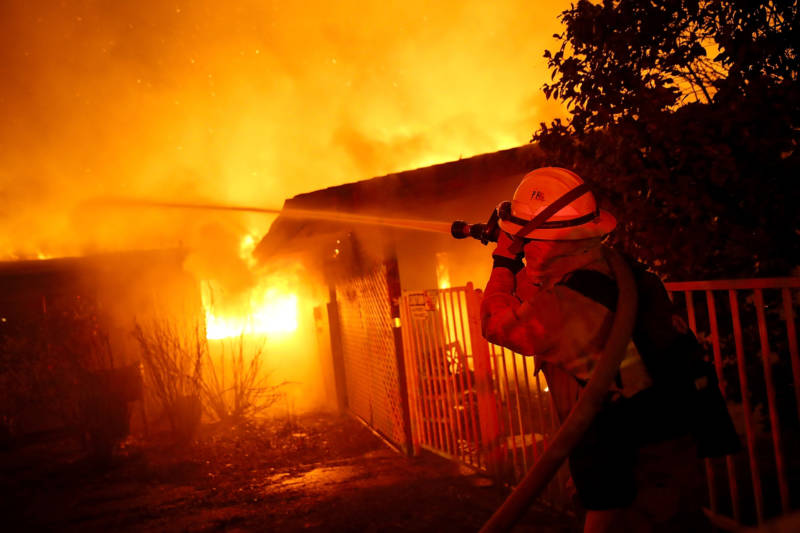“It seems … that Californians strongly recognize that climate change is not just about what’s happening to the average thermostat on planet Earth, but it’s really something [that] is driving up across complex hazards …” Mach said.
The survey showed African Americans and Latinos more concerned about global warming than other racial and ethnic groups: 73% of African Americans said that global warming was a very serious threat, compared to 66% of Latinos, 53% of Asian Americans, and 51% of whites.
“African Americans and Latinos… tend to have higher concerns about environmental issues,” said Mark Baldassare, president of PPIC. “It goes beyond politics to feelings of vulnerability being greater in both lower-income communities as well as in racial and ethnic groups … It’s notable and it’s important to keep in mind as policy makers think about climate resiliency.”
Support Strong for Climate Policies
The survey showed Californians continue to show strong agreement with the state’s efforts to address climate change:
- 75% support requiring automakers to further reduce greenhouse gas emissions from cars
- 74% support encouraging local government to change land use and transportation to reduce driving
- 71% support SB-100, which requires that all of the state’s electricity come from renewable sources by 2045
- 67% support the state law that requires California to reduce its greenhouse gas emissions to 40% below 1990 levels by 2030
- 64% support California making its own environmental policies to address global warming, separate from the federal government
- 57% support Gov. Gavin Newsom’s bill creating a $21 billion wildfire insurance fund to pay for future wildfire damages
- 53% support the state’s cap-and-trade system, which provides companies with incentives to reduce their greenhouse gas emissions
Also of note, 71% support Newsom’s use of cap-and-trade revenue to fund his clean water plan, a controversial budget maneuver among some environmentalists.
The study also revealed that Californians consider the environment important in their political decision making: 80% of voters said they would consider the candidates’ positions on the environment either very or somewhat important in the upcoming election.
As for President Trump, while state residents give him an anemic 32% job approval rating, they rate him even worse on the environment, with 26% approving of his polices.
Overall, Californians were most in agreement on the subject of the coastline: 95% said that the condition of oceans and beaches is very or somewhat important to the state’s economy and Californians’ quality of life, with 77% rating it as very important.
PPIC surveyed 1,706 adults for the study. The margin of error was plus or minus 3.4%.
